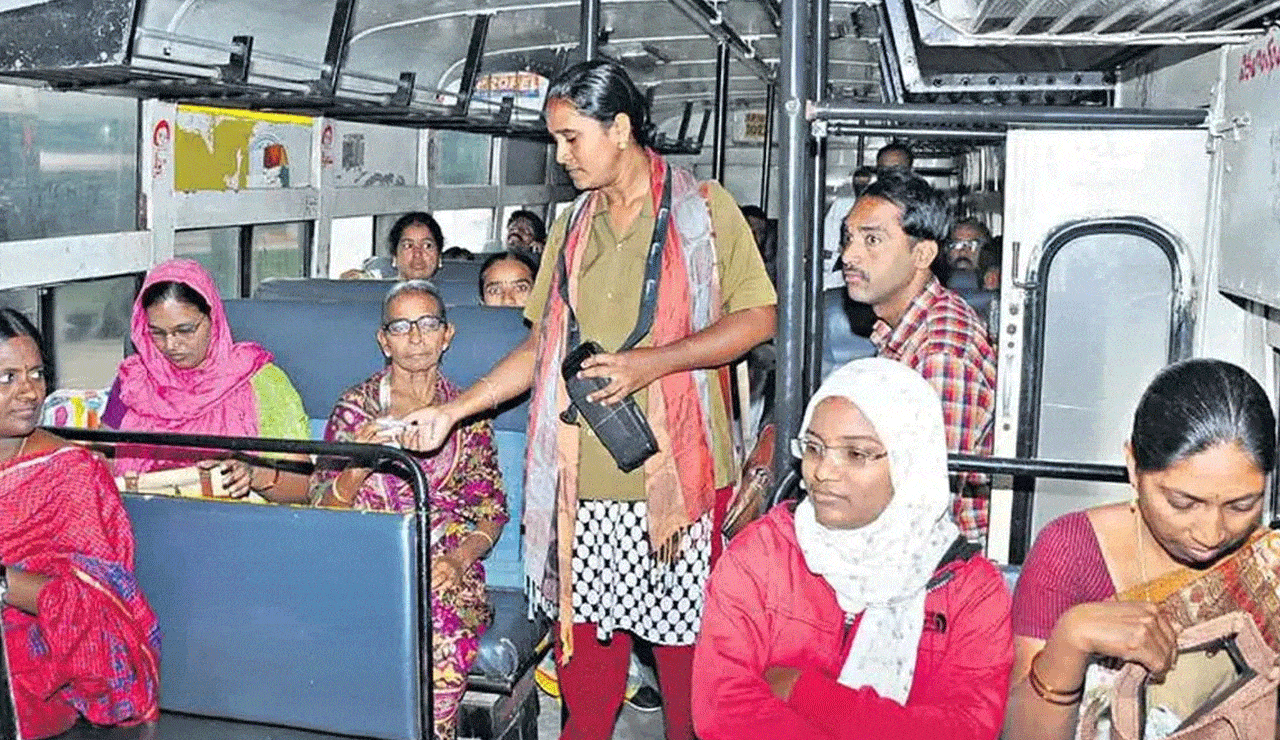Maha Lakshmi Buses, But At What Cost? RTC Conductors Struggle with Unrealistic Targets
Telangana State Road Transport Corporation (TSRTC) conductors are raising concerns over increasing pressure to meet daily collection targets of ₹5,000 per bus, particularly in ordinary and express services.

Hyderabad: Telangana State Road Transport Corporation (TSRTC) conductors are raising concerns over increasing pressure to meet daily collection targets of ₹5,000 per bus, particularly in ordinary and express services. Despite the government’s Maha Lakshmi free travel scheme for women and the existence of various travel passes, conductors are questioning how they can realistically achieve these high targets.
Table of Contents
Free Travel for Women Cuts into Revenue
The Maha Lakshmi Scheme, which provides free bus travel to women across the state, has drastically reduced ticket sales. According to RTC statistics, of the 25 lakh daily passengers, only about 11 lakh are male passengers. In a typical bus carrying 50 passengers, 35 are women availing the free ride benefit, and many of the remaining male passengers travel using bus passes.
Also Read: Telangana Breaks New Ground with Unprecedented ₹1 Crore Announcement – Details Inside”
Conductors say that in such a scenario, expecting them to generate ₹5,000 per day in cash collections is unfair and impractical.
Government Reimbursements Ignored by TSRTC Management?
The conductors and unions are demanding that the government reimbursements under the Maha Lakshmi scheme be factored into daily revenue targets. However, they allege that TSRTC management is ignoring these reimbursements and holding conductors solely responsible for physical cash collection.
“Despite clear government orders, management refuses to consider scheme reimbursements. They are making unilateral decisions and pushing conductors into distress,” said Eedula Venkanna, Chairman of RTC JAC.
Revenue Drops in Rural and Urban Areas
Reports indicate that except in Hyderabad city, most districts are witnessing daily collections below ₹2,500 per bus. In urban areas, many male passengers prefer Metro trains, while in rural regions, people are turning to two-wheelers and auto-rickshaws due to overcrowding in buses and lack of seating space.
Private Transport Gains Popularity
With rising dissatisfaction among commuters regarding bus conditions, many are opting for private vehicles. TSRTC employees warn that this trend could lead to further revenue drops and undermine public transport viability if corrective actions aren’t taken.
Union Warns of Possible Protests
Unions have warned that if the management continues to neglect employee welfare and enforce unrealistic targets, a fresh employee protest or movement may become inevitable.
